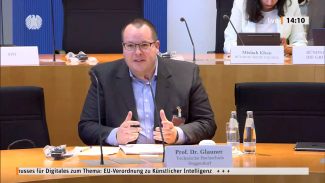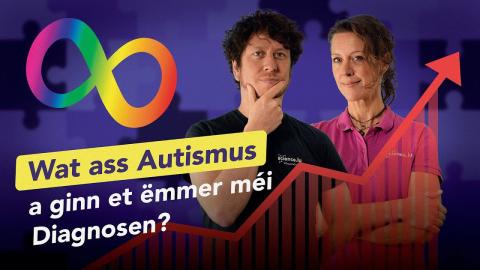
University of Luxembourg, Deutscher Bundestag, LIST
The experts (left to right): Tomer Libal, Patrick Glauner, Francesco Ferrero
Note from the editors: The article was updated on 14th March 2024, with the news of the EU parliament vote on the AI Act.
Yesterday, the majority of the EU parliament voted in favour of the EU AI Act, which defines the future rules for dealing with artificial intelligence (AI) in the EU. The new law can now enter into force. The EU Commission first published a draft in April 2021. Since then, the future rules have been heavily negotiated.
What do researchers think about the legal text? And what do they think is most important to drive forward the development of AI for the benefit of the general public? Here are the statements of three scientific experts based either in Luxembourg or with a connection to Luxembourg:
Prof. Patrick Glauner, Deggendorf Institute of Technology

Patrick Glauner holds a PhD in AI from the SnT - Interdisciplinary Centre for Security, Reliability and Trust at the University of Luxembourg. He previously studied at Imperial College London. He has been Professor of Artificial Intelligence at the Deggendorf Institute of Technology since the age of 30. He is also the Ramon O'Callaghan Professor of Technology Management and Innovation at Woxsen University in India. Previously, he worked at the European Organisation for Nuclear Research (CERN), among others. As an expert, he has advised the German Bundestag and the French National Assembly, among others. He is listed by CDO Magazine as one of the world's leading professors in the field of data.
Photo © German Bundestag
Tomer Libal, University of Luxembourg

Tomer Libal is a researcher in the Department of Computer Science at the American University of Paris and principal investigator of several projects at the University of Luxembourg. He mainly focuses on symbolic and hybrid approaches to AI and law.
Photo © University of Luxembourg
Francesco Ferrero, Luxembourg Institute of Science and Technology

Francesco FERRERO (male) has been Director of the IT for Innovative Services (ITIS) department at the Luxembourg Institute of Science and Technology (LIST) since 2021. ITIS is home to more than 100 IT scientists and engineers who carry out research, development and innovation activities in the field of AI, data and software, with the aim of supporting the digital transformation of private and public organisations. Francesco started his R&D career in 2005 as part of the eSecurity Lab of Istituto Superiore Mario Boella, an Italian RTO, and has been active in the creation and execution of applied research, development and technology projects in the ICT field, particularly in the transport, logistics and smart cities sectors.
Before joining LIST in 2016 as Lead Partnership Officer for the Mobility, Logistics and Smart Cities markets, he held several positions in research and development, management and partnership development. He has been recognised as an international expert in R&D and smart cities and smart mobility for many years, and is co-editor of a major research handbook in the field. He has also been a highly successful Horizon 2020 project coordinator, a keynote speaker at major international events and a member of high-level working groups in Luxembourg and abroad. He sits on the boards of ICT Luxembourg and the Luxembourg Media & Digital Design Centre.
Photo © LIST
Questions: Britta Schlüter
Editor: Jean-Paul Bertemes (FNR)



